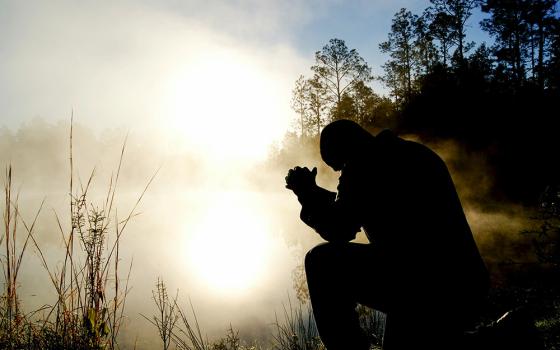
Analysis
Of late, a cycle of hand-wringing over Germany has sprouted in wonkish foreign affairs journals. Germany’s waffling on aid to embattled Euro-zone economies, its abstention from a Security Council vote on Libya, and a $2.5 billion deal to sell crowd-control tanks to Saudi Arabia despite widespread revulsion over images of Saudi tanks crushing protests in Bahrain have all set off alarms.
At bottom, the fear is that after a half-century of moving in concert with other Western powers, Germany may be reverting to historical form -- putting its own strategic and commercial interests first, however destabilizing for the rest of the world.
As it happens, it’s not just the foreign policy establishment fretting.
Catholicism, too, harbors a deep-seated fear of German exceptionalism, rooted not in memories of two 20th-century wars but rather the Protestant Reformation. There’s long been a sense that German-speaking Catholicism is susceptible to what the late Swiss theologian Hans Urs von Balthasar termed an “anti-Roman affect,” meaning, roughly, an instinct to rebel.
Expressions of that instinct can be found across a vast swath of Germany, Austria and Switzerland, but nowhere has it been more vocal or public in recent decades than Austria.
The latest eruption came in late June, when more than 250 Austrian priests, representing 15 percent of the country’s diocesan clergy, issued a public “Appeal to Disobedience.” It called for an end to clerical celibacy and for the ordination of women as priests. Led by a former vicar general of the Vienna archdiocese, the group also announced intentions to defy church law in several areas, including administering Communion to those who have divorced and remarried, and allowing women to deliver homilies at Mass.
The initiative builds upon a poll of Austrian priests last year, which found that 80 percent favored an end to celibacy and 51 percent supported women priests. It also reflects mounting popular discontent; according to government figures, some 87,000 Austrian Catholics formally left the church last year, a 64 percent increase over the 53,000 who did so in 2009.
Two recent forces have shaped the Austrian climate: the sexual abuse crisis, and an unusually sharp clash between a progressive instinct and the outlook of Popes John Paul II and Benedict XVI.
In 1995, Cardinal Hans Hermann Groër of Vienna was forced to resign following charges that he had molested novice monks while a Benedictine abbot in the 1970s. Perceptions that the church was slow to respond unleashed a powerful reform movement. A national campaign emerged called Wir sind Kirche, or “We Are Church,” which collected 750,000 signatures of support in Austria, and more than 2 million in Germany.
Crisis exploded anew again in 2004, when more than 40,000 pornographic images were discovered on computers in the seminary of Austria’s Sankt Pölten diocese, including sexually compromising photos of seminarians and staff. The truculent bishop of Sankt Pölten, Kurt Krenn, among Groër’s most vocal defenders and a harsh critic of Wir sind Kirche, was forced to step down.
Not long afterwards, two Austrian clergy formed a “Priests’ Initiative,” to protest what they termed a “spiral of silence” about needed reforms. That group is the driving force behind the recent “Appeal to Disobedience.”
Compounding the ferment is that Austria is a primary battleground for competing visions of the Second Vatican Council (1962-65).
For almost 30 years, from 1956 to 1985, the dominant force in Austrian Catholic life was the late Cardinal Franz König, an architect of Vatican II and a hero to the church’s progressive wing.
Although König helped engineer the election of John Paul II in 1978, he was out of step with the robustly evangelical tone of John Paul’s papacy -- a dissonance symbolized by the choice of the far more conservative Groër to replace König in 1985, and, a decade later, the transition to Cardinal Christoph Schönborn, a protégé of Benedict.
Schönborn hasn’t yet commented on the call for disobedience, though the deputy head of the Austrian bishops’ conference said it “threatens the character of the global church” and “one-sidedly revokes common obligations” of the priesthood. Reportedly, Schönborn is preparing a letter to the clergy of the Vienna archdiocese to address the priests’ complaints.
The Austrian drama is striking as a testament to the staying power of the “anti-Roman affect” in the Teutonic realm.
Almost three decades of leadership by John Paul II, the election of the first German pope in five centuries with Benedict, and repeated cycles of reform energy that never go anywhere, all have failed to snuff it out. It has enough gas left in the tank to mobilize a significant share of priests and laity, to galvanize media attention, and to force officialdom to take note.
That staying power also may be related to another unique feature of the German-speaking landscape: The “church tax” system, under which clergy and laity who work for the church often draw salaries from the state and enjoy some insulation from direct oversight by bishops.
Like-minded Germans have applauded the Austrian uprising, as Germany struggles to recover from its own sexual abuse crisis. The loyal opposition is gearing up to make its voice heard during Benedict’s Sept. 22-25 trip to Berlin, Erfurt and Freiburg, his third homecoming, but the first since the eruption of the abuse scandals in 2010.
It would be inaccurate to imply that German Catholicism is dominated by a revolutionary avant-garde -- with no better reminder of the point than Benedict himself.
Yet for reasons both long-standing and of recent vintage, the combustibility of German-speaking Catholicism makes it a unique sign of contradiction in the global church, a bête noire for some and a beacon of hope for others.
[John L. Allen Jr. is NCR senior correspondent. His e-mail address is jallen@ncronline.org.]



